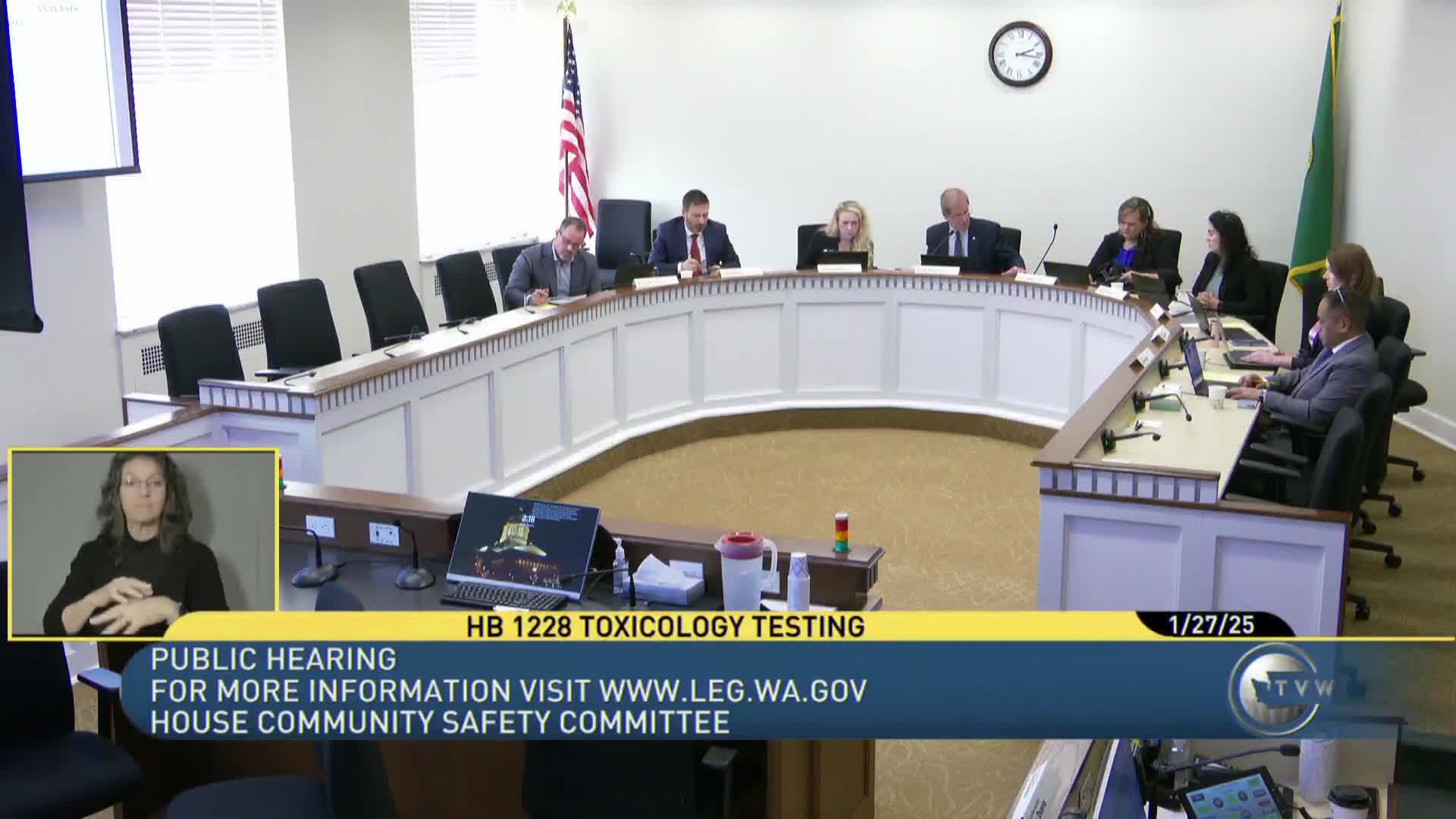Panel weighs allowing ISO‑accredited labs for DUI blood and breath tests amid state lab backlog
Get AI-powered insights, summaries, and transcripts
Subscribe
Summary
Corey Patton, committee staff, summarized House Bill 1228 at the Jan. 27 hearing: it would permit blood and breath analyses used in DUI and related prosecutions to be validated either under state toxicologist permitting or by laboratories accredited to ISO/IEC 17025.
Corey Patton, committee staff, summarized House Bill 1228 at the Jan. 27 committee hearing as a proposal to establish an alternative validation pathway for blood and breath toxicology analyses: either the current state‑toxicologist methods and permitting system or testing performed by laboratories accredited to the international ISO/IEC 17025 standard for forensic toxicology testing.
Prosecutors said backlog at the Washington State Patrol toxicology lab is delaying prosecutions and public‑safety outcomes. Bradley Lane, a senior prosecutor with the Seattle City Attorney’s Office, told the committee that the lab backlog has increased referrals for blood analyses amid rising impaired‑driving cases — notably involving illicit drugs such as fentanyl — and that allowing accredited third‑party labs could “usher more cases to trial at a faster rate.” Russell Brown, executive director of the Washington Association of Prosecuting Attorneys, likewise described long turnaround times for blood tests and urged consideration of pilot programs and guaranteed funding to avoid unpredictable costs.
Defense and procedural concerns: Jeff Berg, testifying for the Washington Association of Criminal Defense Lawyers and the Washington Offenders Association, said his groups generally supported HB 1228 as a way to reduce delays but asked for two modifications: (1) a mechanism to permit defense counsel to interview analysts handling out‑of‑state or private‑lab testing (current state lab practice includes analyst availability for consultation), and (2) a list or pre‑approved roster of laboratories rather than leaving lab selection solely to local law enforcement. Several witnesses noted legal and logistical questions, including recent U.S. Supreme Court opinions affecting laboratory testimony and requirements that the analyst who tested a sample be available to testify.
Law enforcement and resource options: James McMahon of the Association of Sheriffs and Police Chiefs emphasized chronic underfunding of the state forensic labs and urged legislative investment in state lab resources; he described dismissed cases that resulted when lab delays prevented timely prosecution. Committee members discussed state patrol efforts to hire additional toxicologists and whether those staffing plans would materially reduce backlog; prosecutors and lab trainers cautioned that new analysts require many months to become “court ready.”
Committee response and next steps: Committee members signaled interest in pilot approaches, cost assurances and contracting details. The hearing closed with no committee vote recorded.
